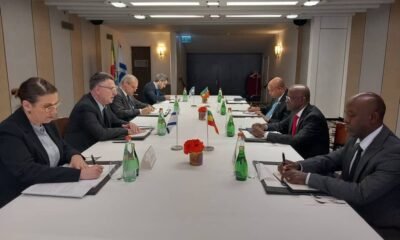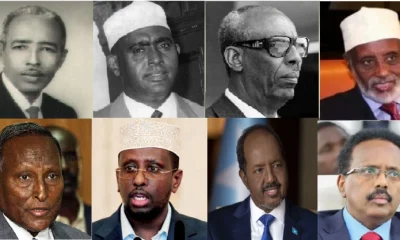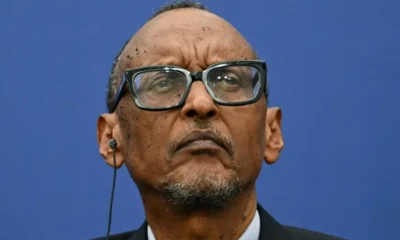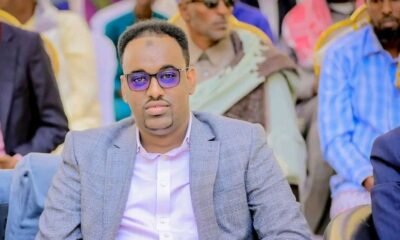Corruption
Africa’s $300 Billion Drain: A Hidden Crisis of Illicit Financial Flows
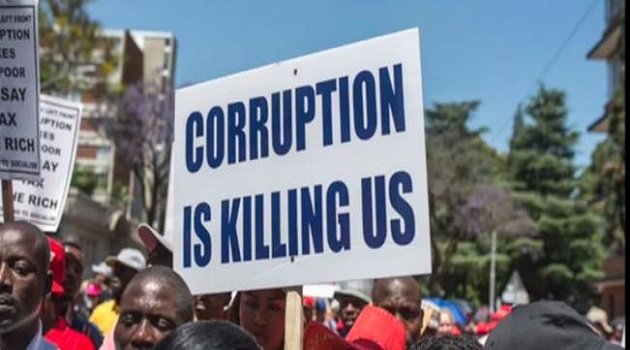
How Weak Definitions and Loopholes Fuel a Financial Exodus from Africa
Africa is hemorrhaging over $300 billion annually due to illicit financial flows (IFFs), driven by tax evasion, corruption, and transnational crimes. The continent’s development is severely undermined, as weak regulations enable billions to slip away, exacerbating poverty and inequality. Experts argue that redefining IFFs to include tax avoidance and broader forms of financial manipulation could significantly curb the losses. Dr. Patrick Ndzana Olomo of the African Union notes that this financial drain impedes Africa’s ability to fund essential sectors like agriculture and industry, stifling inclusive growth.
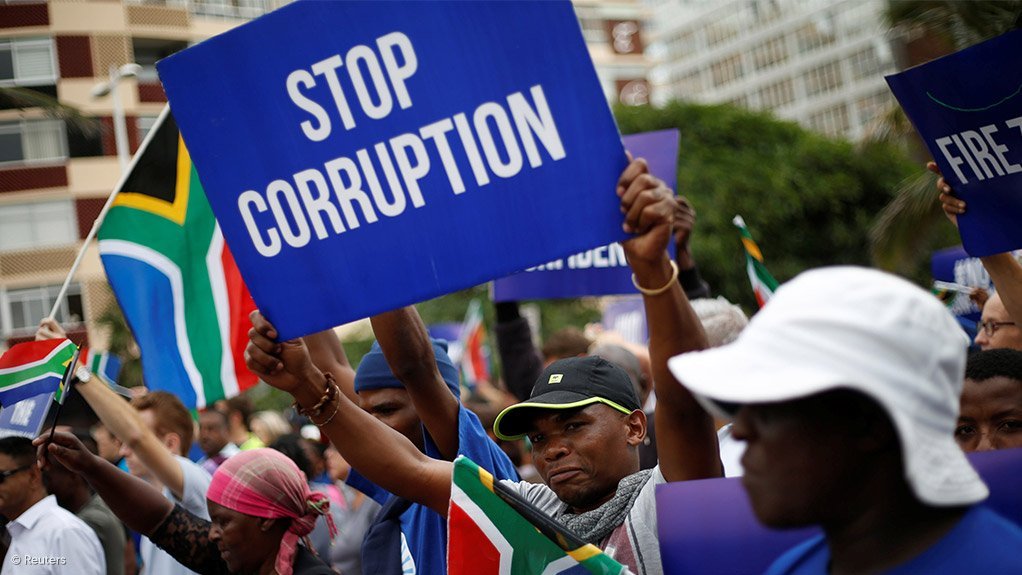
Despite international attention from the G20, World Bank, and others, most definitions of IFFs are limited to illegal activities, leaving out ethical gray areas, such as aggressive tax avoidance. These gaps enable multinational corporations to minimize their tax liabilities, often at the expense of African economies. Chenai Mukumba of the Tax Justice Network Africa (TJNA) calls for a more holistic approach to IFFs, which would capture both illegal and ethically dubious activities that strain domestic resources.
The financial toll is staggering. Africa is losing approximately $90 billion annually through financial leakage, compounded by $220 billion lost to tax avoidance schemes by multinationals. This combined figure is more than half the amount required to meet Africa’s annual development funding needs. Former South African President Thabo Mbeki, leading the African Union’s High-Level Panel on IFFs, emphasizes that these flows are a key impediment to sustainable development. His panel estimates that over $50 billion is lost yearly through illegal transactions, a crisis that has extracted nearly $1 trillion from the continent over the last half-century.

The consequences of these unchecked financial outflows are profound. While billions flow out of Africa, over 400 million people remain in extreme poverty, living on less than $1.25 a day. Meanwhile, the continent’s GDP per capita lags at just $2,000, a fraction of the global average. Experts argue that unless stronger definitions and regulatory frameworks are adopted, Africa’s potential for growth and development will remain stifled, perpetuating a vicious cycle of inequality and underdevelopment.
Expanding the definition of IFFs to include aggressive tax avoidance and other transnational financial manipulations could be a first step toward stemming these losses. Doing so would enhance transparency, facilitate better international cooperation, and empower African nations to reclaim the resources needed for sustainable development.
Corruption
Somalia Audit Flags Millions in Unverified Social Payments and Missing Revenues

Somalia’s top auditor has cast doubt on the integrity of some of the federal government’s most important financial streams, warning that lapses in record-keeping and oversight could undermine both public trust and the confidence of international donors who bankroll much of the state.
In its 2024 annual report, the Office of the Auditor General said more than $153.8 million in social protection spending under the World Bank–financed Baxnaano program could not be independently verified because the U.N. World Food Programme, which administered the transfers, failed to provide full beneficiary records.
Baxnaano is Somalia’s flagship cash-transfer initiative, seen by donors as a lifeline in a country scarred by conflict, poverty, and drought. Its credibility is therefore central not just to households who depend on it but also to the fragile social contract between Mogadishu and its foreign backers. The auditors’ conclusion — a “qualified opinion” on the federal accounts — highlights just how brittle that trust remains.
The audit also flagged gaps in concession revenues from Mogadishu’s seaport and Aden Adde International Airport. The government booked $32.2 million in income from contracts with Albayrak-Somalia and Favori LLC, but neither company submitted audited financial statements, leaving auditors unable to determine whether Somalia received the full share of revenues it was entitled to — 62.17 percent from the port, 25 percent from the airport.
Other irregularities surfaced. Six government entities received about $5 million in off-budget donor grants, while annexes showed another $9.4 million flowing outside official ledgers — a direct breach of Somalia’s Public Financial Management Act and international accounting standards. Ministries also failed to explain major differences between budgeted and actual spending, despite legal requirements to do so.
Auditors pointed to weaknesses in IT systems, donor-funded project oversight, and basic legal compliance. The report’s tone was firm but not fatalistic: Auditor General Ahmed Isse Gutale pledged to work with ministries and partners to close the gaps.
Still, the implications are serious. Somalia is in the midst of sweeping fiscal reforms as it seeks deeper debt relief and continued donor support. The audit will sharpen debate in parliament and in donor capitals over how to balance Somalia’s progress in state-building with its persistent weaknesses in transparency and control.
For a government whose survival rests heavily on external trust, the numbers in this report are not just accounting entries. They are a test of credibility — one that Somalia cannot afford to fail.
Corruption
Ethiopia Warns Diaspora: Avoid These Somali-Run Money Transfer Services
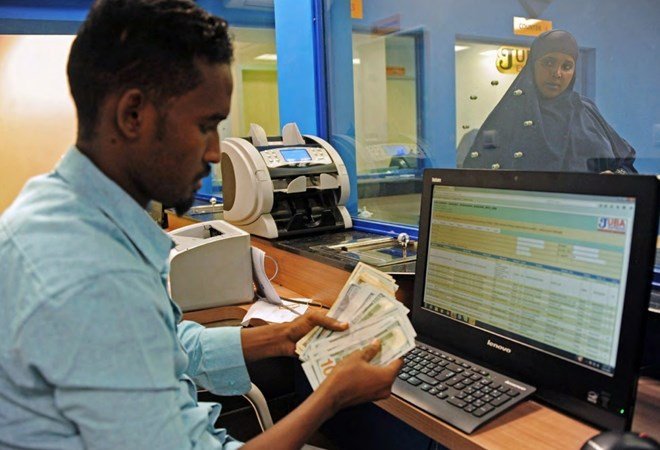
Ethiopia’s central bank has turned its sights on four Somali-owned money transfer firms operating in the U.S., accusing them of laundering money and funneling funds into illegal activities. In a statement released on August 2, the National Bank of Ethiopia (NBE) named Shgey Money Transfer, Adulis Money Transfer, Ramada Pay (Kaah), and TAAJ Money Transfer as the culprits allegedly undermining the country’s financial system and distorting market prices.
The NBE warned Ethiopians abroad to steer clear of these companies, urging them to use safer, legally compliant channels when sending money home. These firms, based across Maryland, Virginia, and Minnesota, serve large East African diaspora communities—particularly Ethiopians and Somalis—who have long depended on informal and semi-formal remittance methods to bypass the often fragile banking systems back home.
While Ethiopia didn’t explicitly call out Somalia, including Somali-run giants like Kaah and TAAJ in the crackdown has sent ripples through diaspora families. These companies act as crucial financial lifelines, channeling funds for essentials like school fees, food, and healthcare to remote areas in Ethiopia’s Somali Regional State, where formal banking barely reaches—only about 6% financial inclusion as of 2024. For many, these remittances aren’t just money transfers—they’re survival.
This latest move comes amid Ethiopia’s sweeping reforms to its foreign exchange system, backed by a $3.4 billion IMF program aimed at unifying exchange rates and cutting down on black market activities. Despite the efforts, the IMF recently flagged ongoing challenges: liquidity shortages, high transaction fees, and a stubborn 15% gap between official and black-market rates.
Still, remittances remain a financial pillar for Ethiopia. In 2023/24 alone, the Ethiopian diaspora pumped over $6 billion into the economy—around a third of the country’s official foreign currency inflows.
Unlike past quiet regulatory nudges, the NBE has gone public, releasing an updated list of more than 80 officially licensed money transfer agencies as of April 2025. This roster features big names like Western Union, MoneyGram, and World Remit, alongside regional players such as Equity Bank Kenya and LA Poste de Djibouti. Somali-targeted services like Iftin Express and Tawakal also appear, but notably absent are the firms now under scrutiny.
The NBE insists that sending money through formal, regulated channels is critical to preventing money laundering and terrorism financing. The bank pledges ongoing investigations and readiness to take further action.
This crackdown highlights the delicate balance Ethiopia faces: cracking down on illicit financial flows while ensuring vital remittance corridors to vulnerable populations remain open. It’s a tough line to walk, especially when many rely on these channels as their only financial connection to home. The coming months will reveal whether Ethiopia’s efforts will tighten financial controls without cutting off essential lifelines for its diaspora communities.
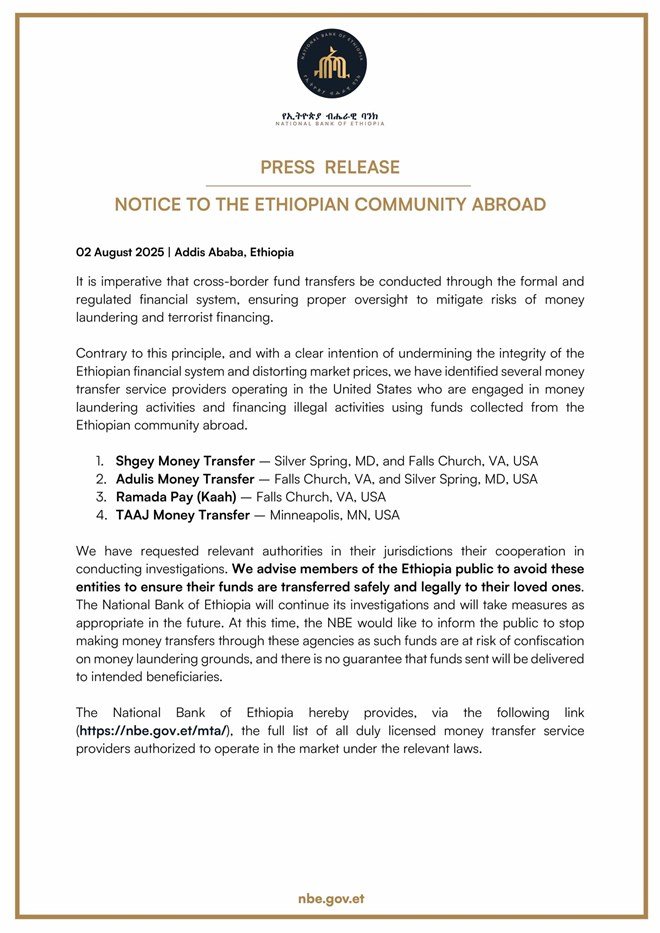
Corruption
$1.7M Scandal Explodes in Somalia: Parliament Alleges Corruption, Threatens Collapse of Donor Confidence
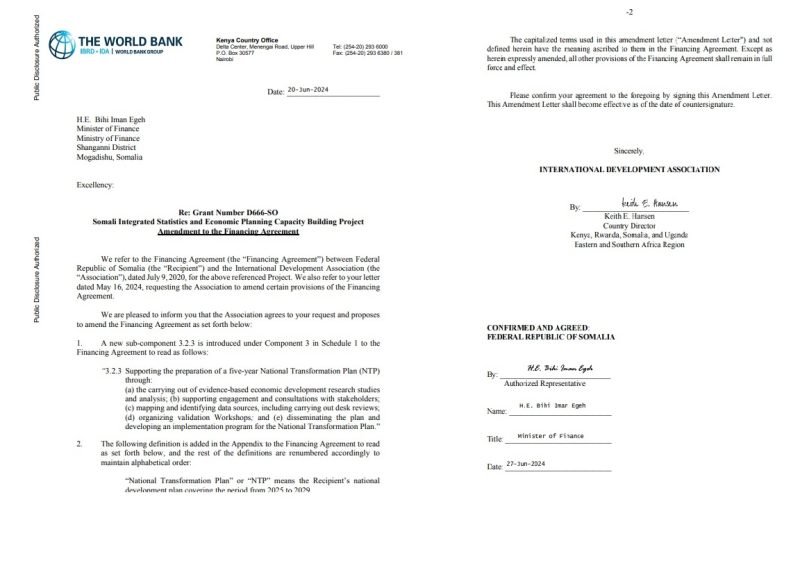
MP Dr. Abib accuses Somali leadership of corruption, illegal contracting, and diplomatic sabotage in World Bank project.
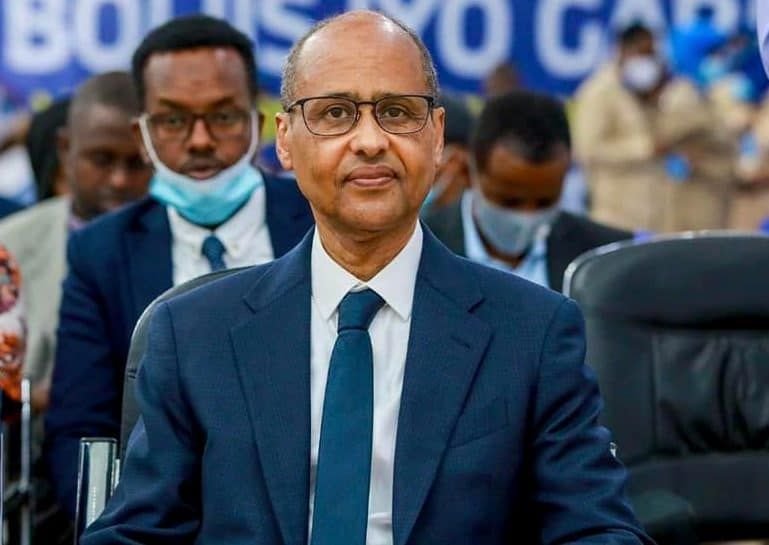
Explosive corruption allegations rock Somalia’s government as MP Dr. Abib exposes illegal $1.7 million contract with PEMANDU Associates. International donors on edge as diplomatic crisis brews.
Somalia’s fragile legitimacy is unraveling—again—this time under the weight of a $1.7 million corruption scandal that could choke the nation’s lifeline of international aid. At the center: a high-stakes consulting contract with Malaysia-based PEMANDU Associates and a damning letter by Federal MP Dr. Abdullahi Hashi Abib that pulls no punches.
From contract fraud to constitutional violations, the scandal tears into the Somali government’s already tenuous credibility. Dr. Abib’s accusations strike directly at the heart of state power: Prime Minister Hamse Barre, the Minister of Finance, and even the Central Bank Governor are named in an alleged web of patronage, nepotism, and legal misconduct. The contract, supposedly for a “National Transformation Plan,” not only sidesteps the existing National Development Plan (NDP-9), but tramples Somalia’s own laws and the World Bank’s procurement protocols.
This isn’t just about numbers and paperwork. This is a war over the soul of Somalia’s development future—and whether that future will be written by Somali institutions or foreign cronies with elite connections.
The deeper scandal? The expulsion of Sweden’s Deputy Ambassador, reportedly for questioning the legitimacy of the NTP plan. That single act triggered a diplomatic time bomb, endangering ties with Sweden, the EU, and the broader donor community that props up Somalia’s fragile institutions. Already suffering from what Abib calls “plan fatigue,” donors may walk away for good—leaving Mogadishu’s elite in their palaces and the Somali people with dust.
This isn’t just bureaucratic rot. It’s systemic sabotage of Somalia’s own governance structure. The removal of the Planning Ministry from oversight reeks of executive overreach, a hijacking of constitutional order. It’s no longer just corruption; it’s state capture.
If these allegations hold, Prime Minister Hamse may soon find himself isolated both internationally and domestically. With mounting pressure for parliamentary inquiries, forensic audits, and criminal investigations, this could be the opening salvo of a broader political reckoning.
Somalia’s leaders now face a stark choice: accountability or collapse.
Stay tuned. WARYATV will track every twist of this unfolding scandal.
Corruption
Somalia Remains Among World’s Most Corrupt Nations, Transparency International Report Finds

Somalia’s corruption index drops again, reinforcing concerns over governance, security, and economic stability.

Somalia has once again been ranked among the world’s most corrupt countries, according to Transparency International’s 2024 Corruption Perceptions Index (CPI). With a score of just 9 out of 100, the country slid further down the rankings, securing the 179th spot out of 180 nations, second only to South Sudan.
Despite government pledges to tackle systemic corruption, the reality paints a grim picture: public funds disappear into the hands of officials, judicial institutions lack the power to prosecute wrongdoing, and bribery remains the norm in every sector. The security forces, already battling Al-Shabaab insurgents, have seen their budgets gutted by corrupt officials, further destabilizing the nation.
Anti-corruption measures, such as the establishment of the Office of the Auditor General and procurement oversight reforms, have done little to halt the tide of fraud and embezzlement. Political interference ensures that high-profile figures remain untouchable, while millions in international aid vanish without accountability.
Beyond governance, corruption is crippling Somalia’s economy and exacerbating the effects of climate change. Donor funds meant for disaster relief are siphoned off, and critical infrastructure projects remain incomplete. Meanwhile, foreign investors remain wary of engaging with a nation where fraud and mismanagement are the status quo.
Somalia’s worsening ranking reflects a broader trend in the region, with Sudan and South Sudan also among the worst offenders. Ethiopia and Kenya, while performing slightly better, continue to struggle with deep-rooted corruption, particularly in procurement and law enforcement.
With corruption now deeply embedded in Somalia’s political and economic fabric, the future remains uncertain. Without drastic action, the country risks further descent into instability, ensuring that development, security, and public trust remain elusive.
Corruption
Aimee Bock Trial: Prosecutors Unravel Massive $250M Feeding Our Future Fraud
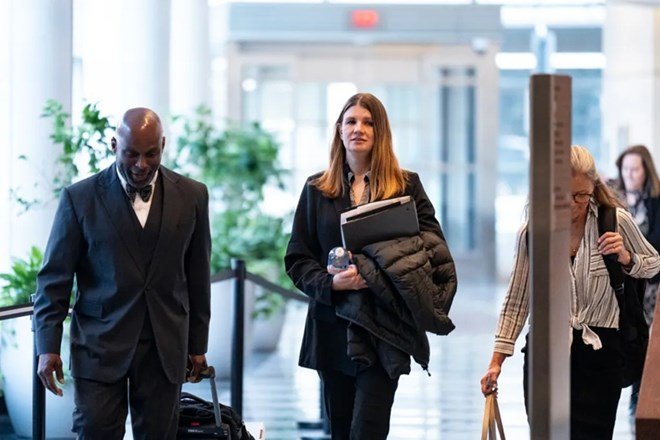
Feeding Our Future founder accused of orchestrating the largest pandemic-era fraud in U.S. history as prosecutors detail $250 million embezzlement scheme.
The trial of Aimee Bock, alleged mastermind behind the staggering $250 million Feeding Our Future fraud, has taken center stage in a Minneapolis courtroom. Federal prosecutors accuse Bock of running a sophisticated network of fraudulent food sites, siphoning taxpayer money meant to feed low-income children during the COVID-19 pandemic.
Assistant U.S. Attorney Daniel Bobier painted Bock as the “gatekeeper” of the scheme, allowing fraudulent food distributors to claim impossible meal numbers—one site allegedly reported serving 185,000 meals per day, more than the entire public school system in Minneapolis and St. Paul combined. Prosecutors also allege that Bock personally enriched herself, directing $1 million to her boyfriend and accepting a $310,000 bribe to enroll a non-operational daycare into the federal meal program.
Bock’s defense insists she was a scapegoat, deceived by fraudsters within her own organization. Her attorney, Kenneth Udoibok, argues that the Minnesota Department of Education (MDE) failed in its oversight role, continuing to approve funding despite internal fraud concerns. FBI investigators and co-defendants who have already pleaded guilty are set to testify, with the trial expected to last up to a month.
This case marks one of the most significant fraud prosecutions in U.S. history, exposing critical failures in government oversight of federal nutrition programs.
Corruption
Minnesota: Somali Journalist Admits Guilt in $250M Fraud Scandal

Mohamed Muse Noor, a prominent Somali journalist and media owner, has pleaded guilty in the staggering $250 million Feeding Our Future fraud case, one of the largest pandemic-related scams in U.S. history. Noor, also known as Deeq Darajo, admitted to conspiracy to commit wire fraud, acknowledging his role in falsifying records and siphoning funds meant to feed hungry children.
Noor, who owned Xogmaal Media Group, claimed to provide meals for 1,500 children daily, but prosecutors revealed the numbers were entirely fabricated. Court records show he never even visited the feeding sites listed under his name. Arrested at Chicago’s O’Hare Airport in 2022 while attempting to flee to Turkey, Noor received $1.3 million in illicit funds, though a fellow conspirator, Feeding Our Future employee Abdikerm Eidleh, allegedly took most of it, leaving Noor with just $52,000.
Minnesota Woman Pleads Guilty in $5.7M Feeding Our Future Fraud
The case is rocking Minnesota’s Somali community, with federal agents aggressively pursuing luxury cars, real estate, and bank accounts linked to the fraud. Noor’s guilty plea follows confessions from other defendants, including Safari Restaurant owners, who fraudulently claimed $16 million in reimbursements for feeding 5,000 children daily.
The scandal’s mastermind, Aimee Bock, is set to stand trial Monday, alongside co-defendant Salim Said. Prosecutors argue that instead of feeding vulnerable children, those involved enriched themselves on taxpayer dollars.
The fallout is immense. Trust in federally funded programs is collapsing, and Somali-American leaders fear lasting damage to businesses and community credibility.
As federal prosecutors continue to seize stolen assets, the question lingers—how deep does this fraud go, and who else will fall?
Court Clash Over Somali Real Estate Developer Unveils Tensions in Minnesota
Somali-American Leader Sentenced to 17 Years for Role in $250M Feeding Our Future Fraud
Somali Refugee Pleads Guilty to Stealing Millions in COVID Fraud Scheme
FBI Forensic Accountant Tracks Misused Taxpayer Funds in Feeding Our Future Trial
Corruption
Court Clash Over Somali Real Estate Developer Unveils Tensions in Minnesota

Corruption
Farah Maalim Bragging About Stolen Millions Sparks Outrage
A Shocking Admission
An explosive audio clip of Farah Maalim, MP for Daadab and former Deputy Speaker of Kenya’s National Assembly, has surfaced. In the recording, Maalim boasts about embezzling millions of dollars during his tenure.
Speaking in Somali on Twitter Space, he reveals how he exploited his position as deputy speaker and chairman of the Parliament Liaison Committee to pocket substantial sums from the allocated parliamentary funds.
Timing and Context
The timing of this revelation is critical. Maalim is already under fire for advocating violence against 5000 Gen Z protesters who stormed Parliament to oppose the now-withdrawn Finance Bill 2024. This audio adds fuel to the controversy, portraying Maalim as both corrupt and violent.
“In January, Farah Maalim claimed on Somalia Twitter spaces.
He openly boasted about not needing money because he was in control of "hundreds of millions of dollars" during his tenure as Deputy Speaker.” pic.twitter.com/4FEgTmJ7xm
— BRAVIN YURI (@BravinYuri) July 10, 2024
-

 Interagency Assessment2 months ago
Interagency Assessment2 months agoTOP SECRET SHIFT: U.S. MILITARY ORDERED INTO SOMALILAND BY LAW
-
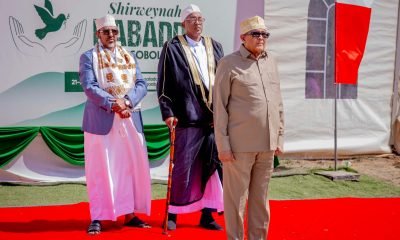
 Somaliland4 months ago
Somaliland4 months agoSomaliland Recognition: US, UK, Israel, and Gulf Bloc Poised for Historic Shift
-

 Minnesota1 month ago
Minnesota1 month agoFraud Allegations Close In on Somalia’s Top Diplomats
-

 Middle East2 months ago
Middle East2 months agoSaudi Arabia vs. UAE: How The Gulf Rivalry is Heating Up
-

 American Somali3 months ago
American Somali3 months agoWhy Frey Won a Significant Share of the Somali Vote Against a Somali Opponent
-

 Middle East2 months ago
Middle East2 months agoTurkey’s Syria Radar Plan Triggers Israeli Red Lines
-

 Editor's Pick1 month ago
Editor's Pick1 month agoWhy India Is Poised to Become the Next Major Power to Recognize Somaliland
-
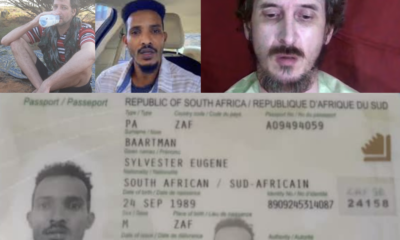
 The Million-Follower Exile2 months ago
The Million-Follower Exile2 months agoWhy America Deported Its Most Famous Somali TikTok Star And Who Paid The Price








